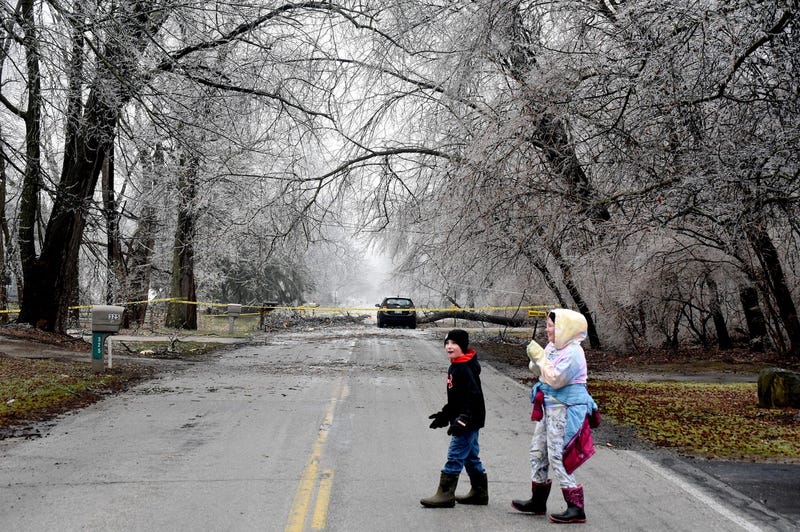
DETROIT (WWJ) - Winter in Southeast Michigan has been relatively quiet this year -- until a historic ice storm pommeled the area and knocked out power to more than 600,000 homes and businesses.
Officials are calling it one of the worst winter storms to hit the area in over a decade, but is extreme weather becoming less of an anomaly and more of the norm?
Richard Rood, a professor of climate and space sciences and engineering at the University of Michigan College of Engineering, says yes — and what we're now is only likely to get worse.
"What I've been saying is that this is not a one-off year.," Rood told WWJ's Mike Campbell during a live interview on Saturday morning. "This is a year in a continuing warming trend that is more noticeable in the winter than it is actually in the summer."
"It's actually just at the beginning of warming," he warned. "It might be an anomaly compared to the past, but I don't think it should be considered a one-off or an anomaly going into the future."
According to Rood, Southeast Michigan is already seeing the effects of this warming climate. January and February, traditionally the coldest months of the year, were relatively mild in 2023 with temperatures averaging above normal.
And while some Michiganders might embrace the warmer weather, Rood said this is exactly what is creating extreme weather like last week's ice storm.
"We have been seeing that as the climate warms in areas where it would have been cold enough to be snow — which was almost always true 30 years ago — we're seeing more freezing rain, which occurs closer to the freezing line," the professor explained.
As the temperature goes up, the likelihood of ice storms impacting regions like Metro Detroit also goes up.
Rood debunked the idea that the climate "cycles" through warmer and cooler periods as "not well-founded science," and said Michiganders should not expect conditions seen now to transition back to weather experienced in years past.
"The warming that we're experiencing right now is not going to turn back around towards a colder climate," he stated. "What we're seeing right now is that it's still at times cold enough to snow, but it's closer to the freezing point... during a transition phase here, you're going to see more snow and the more likelihood of freezing rain."
Rood said officials and citizens should be concerned about climate change and he believes it is our responsibility to intervene where and when we can to limit the effects of warming.
If not, Rood warmed that extreme weather events will continue to negatively impact our daily lives, not just during a particular season, but all-year around.
"I have talked with power companies about the increasing likelihood of events like freezing rain. I've talked to them about the fact that we've been seeing all this flooding in the last few years, which then makes the soil that holds the trees looser, so that when there's a windstorm, you get more tree fall and the power companies are taking these things seriously."
According to Rood, putting more time, effort and money into adaptation is the most important move to make to be prepared for weather events influenced by a warming climate. Rather than responding to emergencies, adapting can put companies and residents can get out ahead of a bad storm.
"The knowledge that comes from climate science and the guidance of the models provide for the future actually imbue us with responsibility to do that," the professor added. "And the people who choose to do that I think will benefit."
